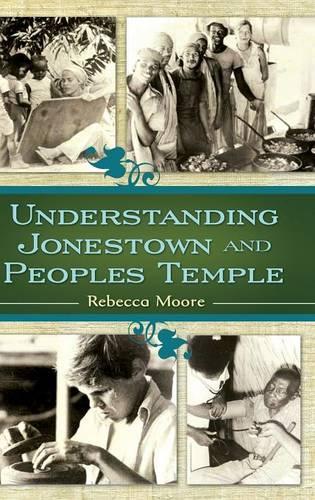
Understanding Jonestown and Peoples Temple
(Hardback)
Available Formats
Publishing Details
Understanding Jonestown and Peoples Temple
By (Author) Rebecca Moore
Bloomsbury Publishing PLC
Praeger Publishers Inc
20th March 2009
United States
Classifications
General
Non Fiction
Religion: general
988.1
Physical Properties
Hardback
179
Description
Most people understand Peoples Temple through its violent end in Jonestown, Guyana in 1978, where more than 900 Americans committed murder and suicide in a jungle commune. Media coverage of the event sensationalized the group and obscured the background of those who died. The view that emerged thirty years ago continues to dominate understanding of Jonestown today, despite dozens of books, articles, and documentaries that have appeared. This book provides a fresh perspective on Peoples Temple and Jonestown, locating the group within the context of religion in America and offering a contemporary history that corrects the inaccuracies often associated with the group and its demise. Although Peoples Temple has some of the characteristics many associate with cults, it also shares many characteristics of Black Religion in America. Moreover, it is crucial to understand the organization within the social and political movements of the 1950s, 1960s, and 1970s. Race, class, colonialism, gender, and other issues dominated the times, and so dominated the consciousness of the members of Peoples Temple. Here, Moore, who lost three family members in the events in Guyana, offers a framework of U.S. social, cultural, and political history that helps readers better understand Peoples Temple and its members.
Reviews
Moore provides a superbly balanced, informed, and accessible introduction to understanding many dimensions of the Peoples Temple story. Summing Up: Highly recommended. Lower-level undergraduates and above; general readers. * Choice *
Understanding Jonestown and Peoples Temple will be of use for courses in advanced sociology or social psychology that specialize their focus on phenomena such as religious cults. It also will be a worthy read for professionals in those disciplines, as well as students and scholars of religion who are interested in the intersection of theology and social behavior. * PsycCRITIQUES *
Part reportage and part critical historiography, Moore's account moves expertly through thickets of evidence, from newspapers and government reports to Jonestown recordings and first-person accounts. Through Moore's judicious rendering, the story of Peoples Temple is no longer mere madness. Instead, it appears as a utopian journey whose catastrophic millennialism belies its Midwestern origins, as wells as its optimistic advertisements of progress, communal labor, and real equality. * Indiana Magazine of History *
Author Bio
Rebecca Moore is chair of the Department of Religious Studies at San Diego State University. She is co-editor of Nova Religio: The Journal of New and Emergent Religions, and served on the Steering Committee of the New Religious Movements Group of the American Academy of Religion for six years. She has published extensively on Peoples Temple, her interest stemming, in part, from the loss of three family members in the mass deaths in Jonestown, Guyana, in November 1978. Her most recent book on Peoples Temple is as co-editor of a volume titled Peoples Temple and Black Religion in America (2004).
